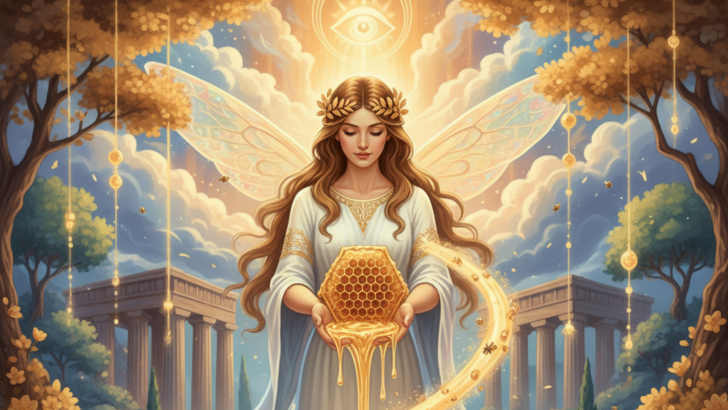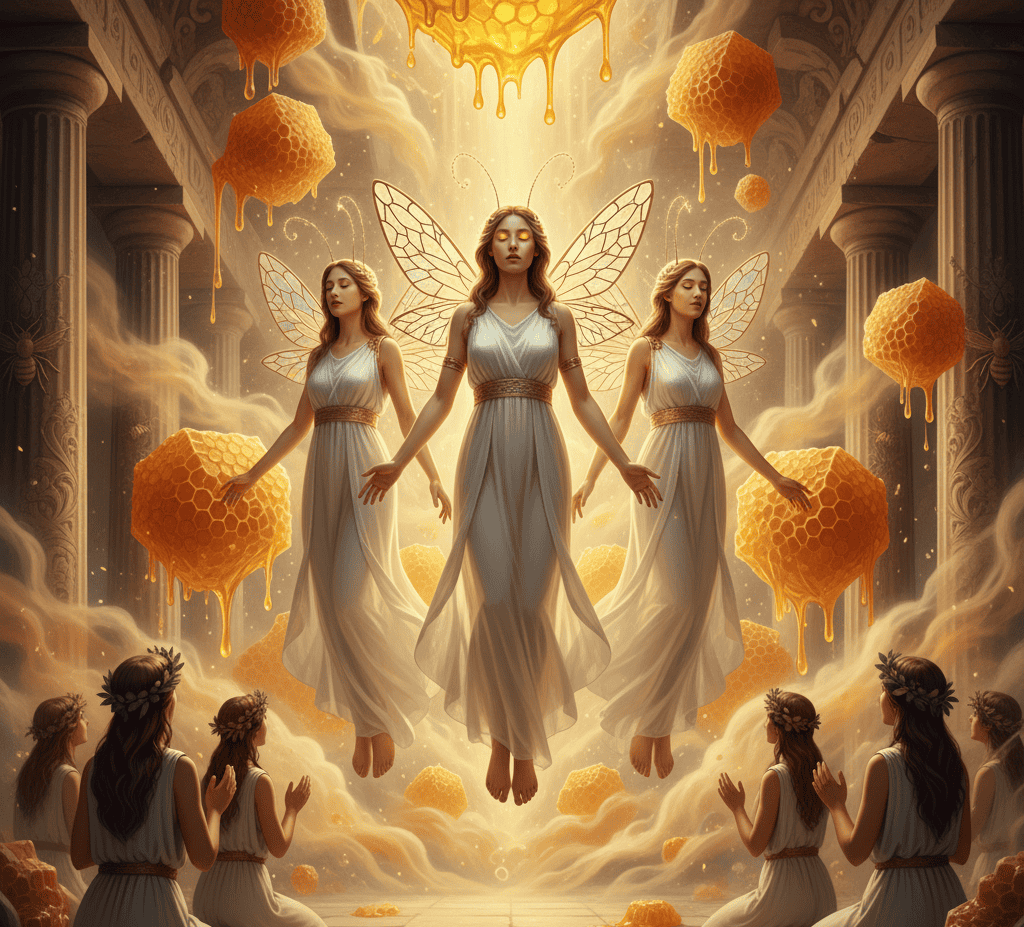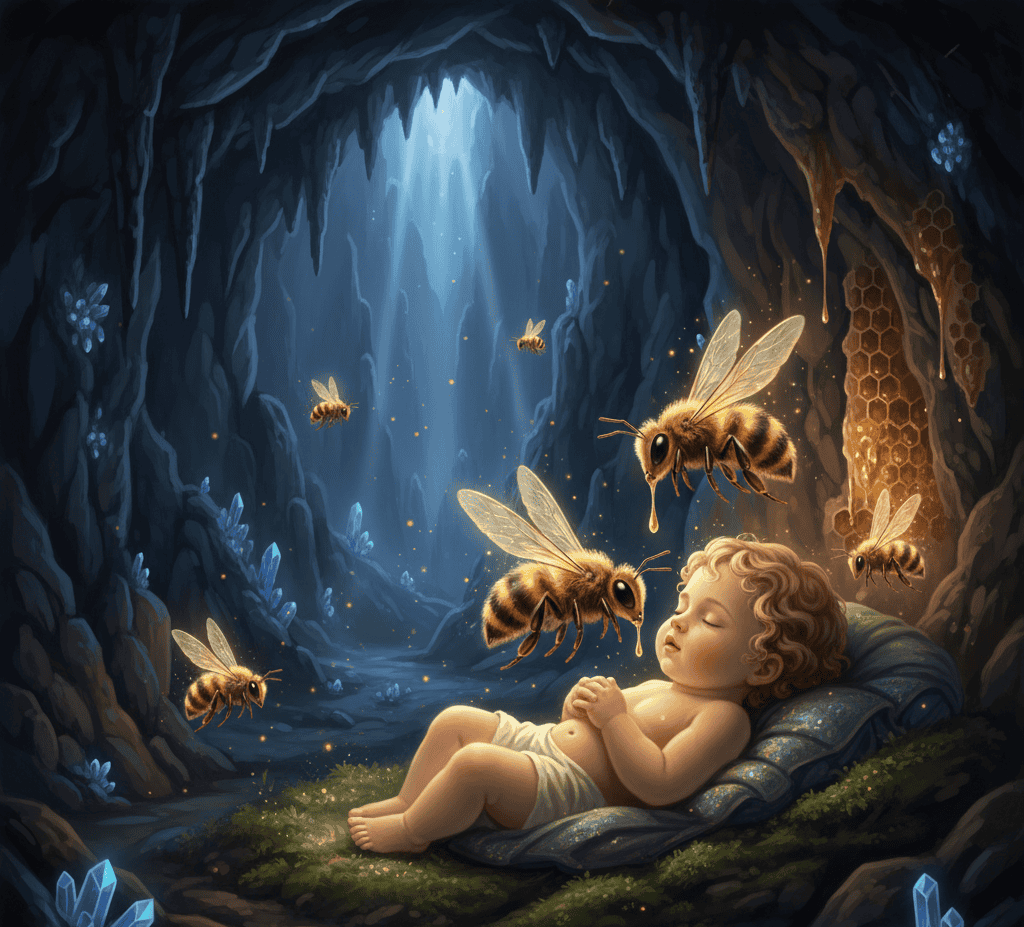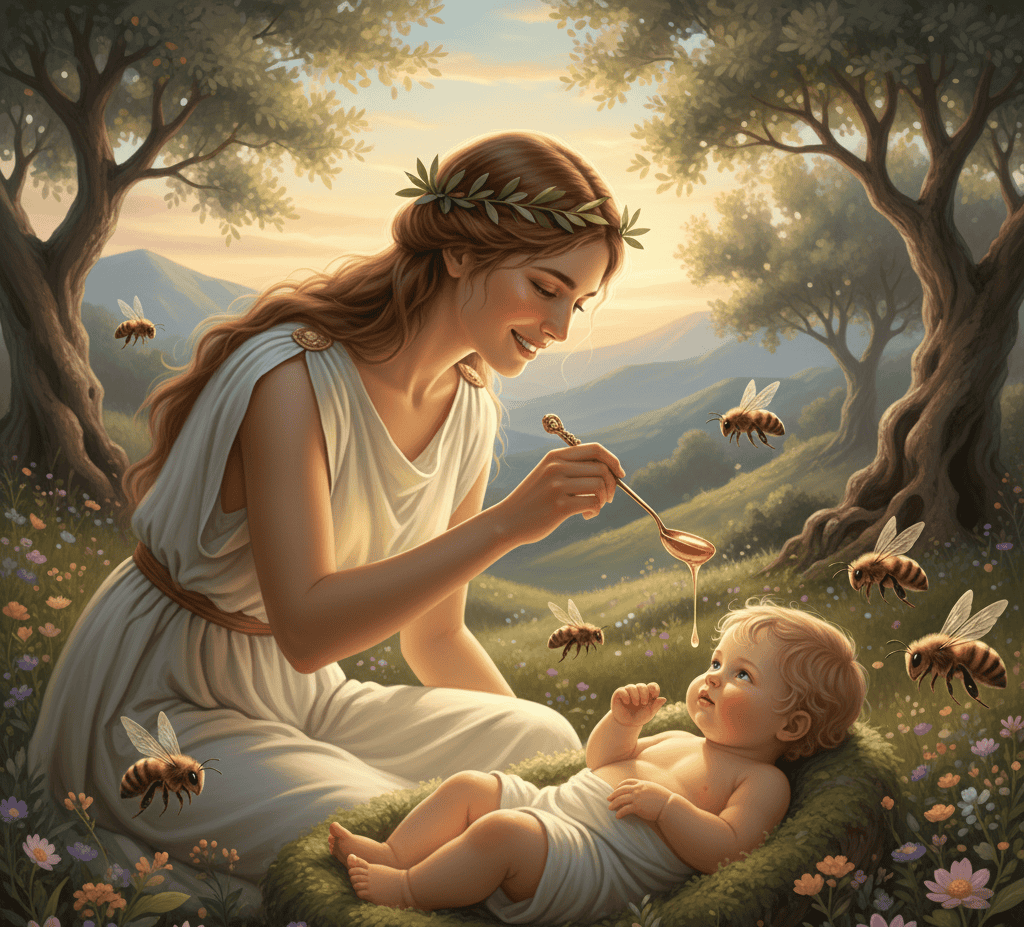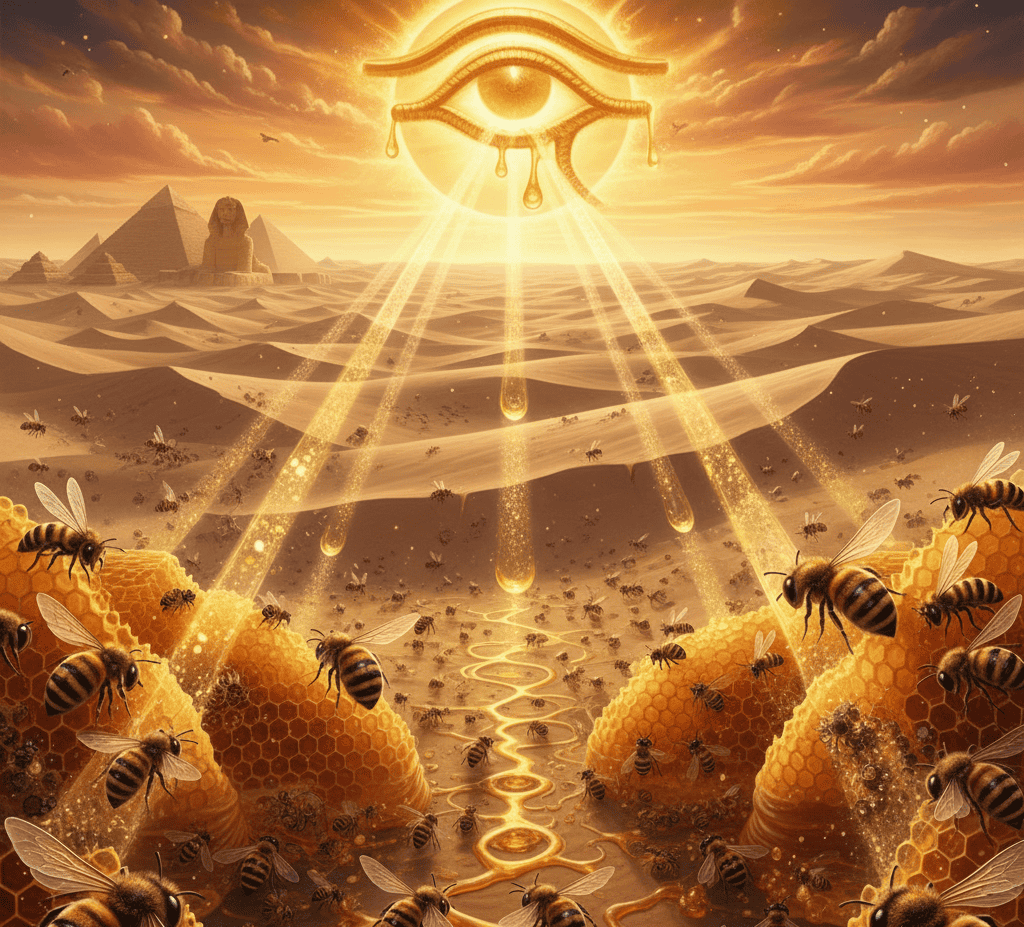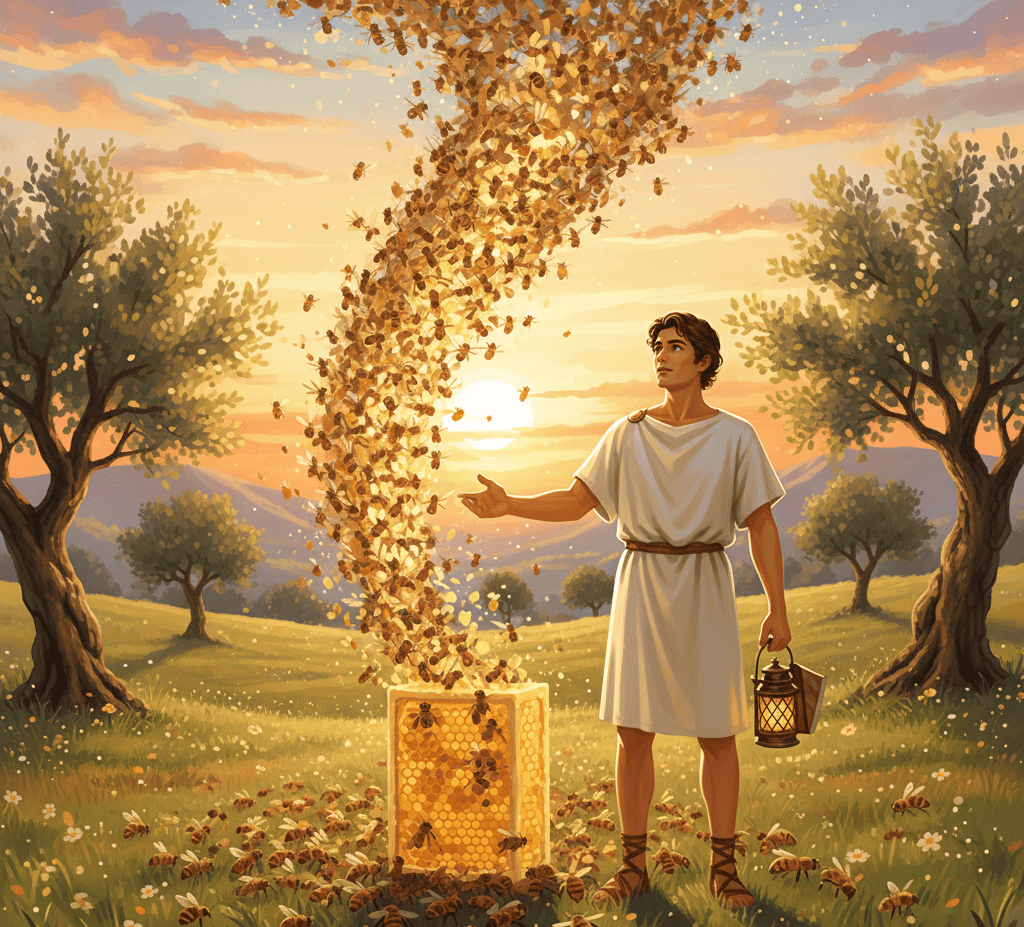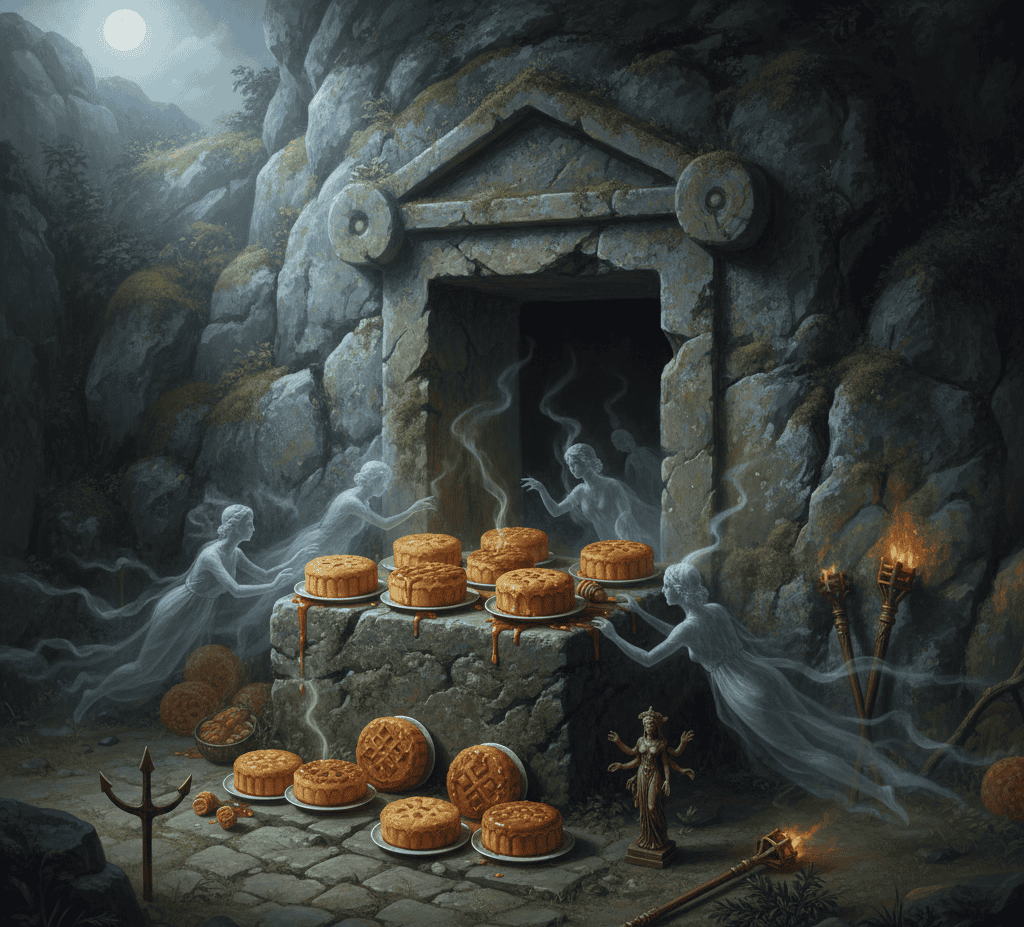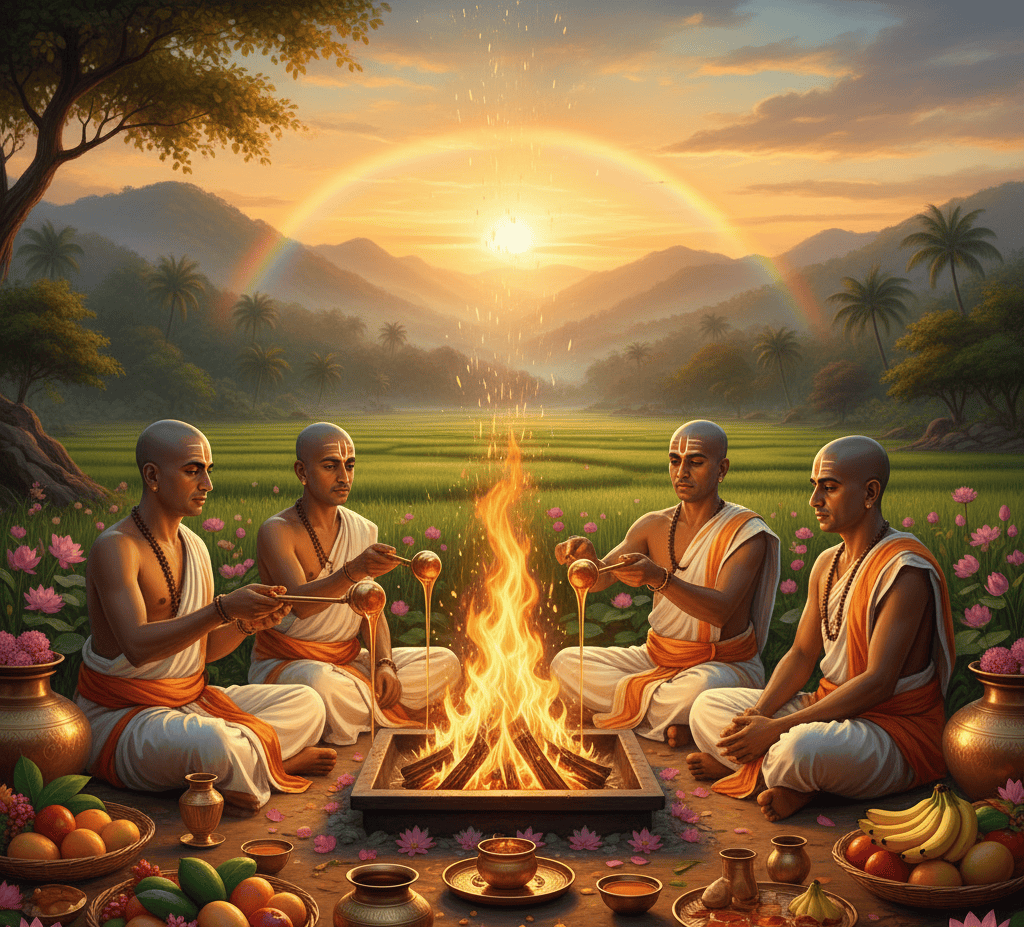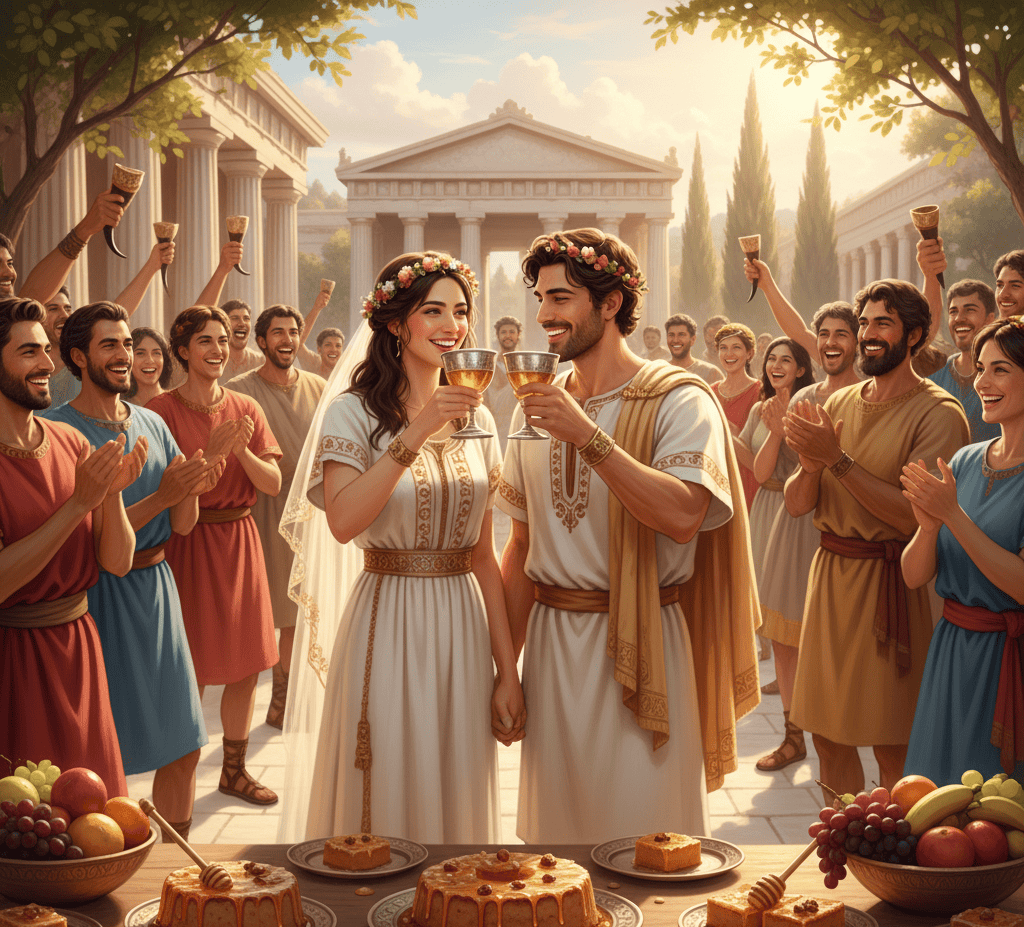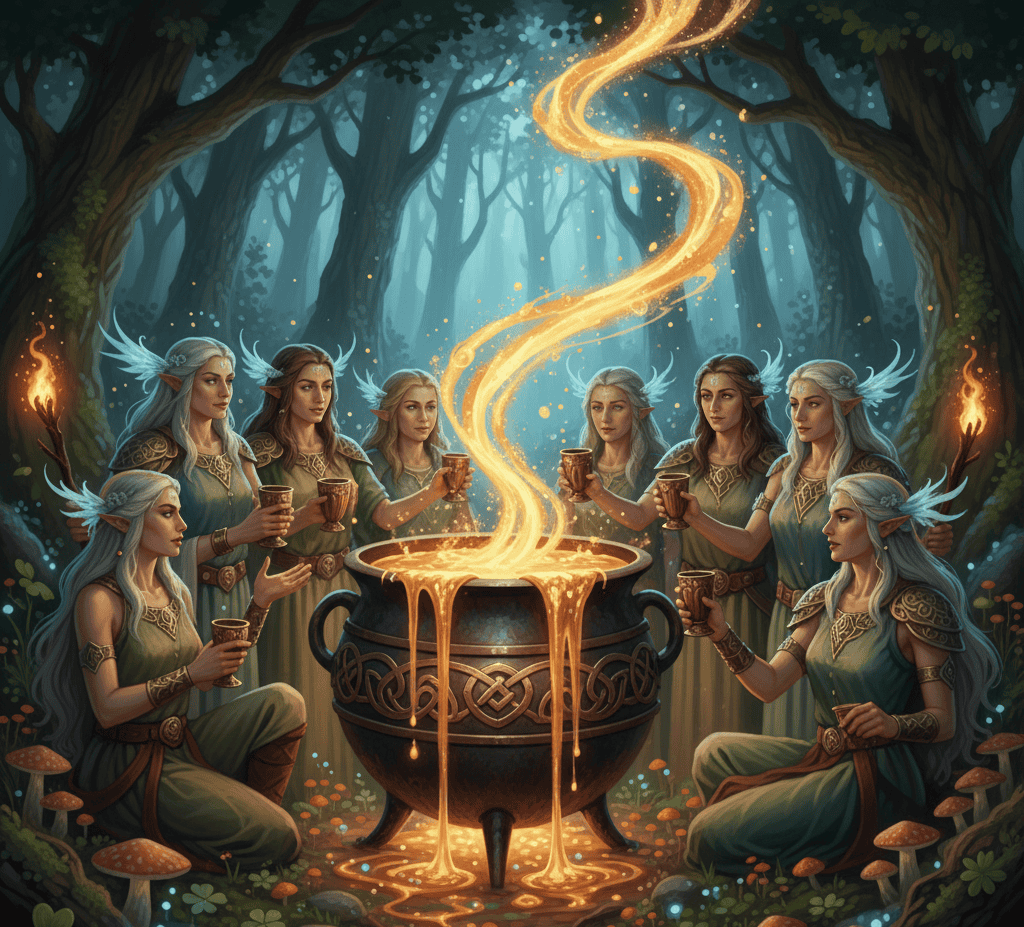Honey is one of those substances that feels magical even before you add myth to it.
Golden, sweet, and lasting for centuries without spoiling, it seemed to the ancients like something that must have come from the gods themselves.
Across different cultures, honey was never just food. It was medicine, an offering, a sacred gift, and sometimes even a bridge between mortals and the divine.
Let’s step into the world of myths and see how honey became a divine treasure across stories of gods and humans.
1. The Bee Maidens of Delphi
In Greek myth, the Oracle of Delphi, the most sacred prophetic site in the ancient world, was once linked to bees and honey.
A group of mysterious beings known as the Bee Maidens was said to have taught Apollo’s priestesses how to speak prophecy.
These divine bee spirits fed on honey and used it to enter trances that allowed them to connect with the gods.
Honey was not just nourishment for them but a sacred tool of communication between heaven and earth.
The idea that a spoonful of golden sweetness could unlock the mysteries of fate shows how strongly the Greeks linked honey with divine inspiration.
2. Zeus Nurtured by Bees
Zeus, the king of the gods, was once a vulnerable infant hidden away from his father, Cronus, who devoured his children. To keep him safe, his mother Rhea concealed him in a cave on Crete.
There, divine bees were said to have fed him honey, sustaining the future ruler of Olympus until he grew strong enough to claim his throne.
Without honey, the great god might never have survived. This story gave honey an eternal link to power and divine destiny, turning it into the food of kings and gods alike.
3. The Mead of Poetry in Norse Myth
In Norse mythology, honey takes on a different form but carries the same sacred weight. When the gods created the Mead of Poetry, it was said to have been brewed with honey mixed into the blood of a wise being named Kvasir.
Anyone who drank it gained the power of poetry, song, and eloquence. This honeyed drink was so prized that Odin himself stole it from the giants to gift to humanity.
To the Norse, honey was not simply sweet but a divine force that shaped creativity and gave mortals a taste of immortality through words.
4. Melissa, the Nurturing Nymph
Another Greek tale links honey directly to the nurturing care of the gods. Melissa, whose very name means bee, was a nymph entrusted with feeding the infant Zeus.
Instead of milk, she gave him honey. For this, she was honored as the first priestess of the Great Mother goddess.
Honey in this story is more than food. It is life-giving, protective, and sacred. Melissa’s role shows how honey was imagined as the golden nectar that safeguarded gods and shaped the future of the cosmos.
5. The Egyptian Bee of Ra
In Egyptian mythology, bees themselves were said to have sprung from the tears of Ra, the sun god. When his tears fell upon the desert sand, they transformed into bees who then created honey.
This made honey not just a food but a direct product of divine sorrow and light. Egyptians used honey in offerings to the gods, in burial rituals, and in medicine.
Every drop carried a piece of Ra’s essence, making honey a sacred bridge between humans and the eternal sun.
6. Aristaeus and the Gift of Beekeeping
Aristaeus, a son of Apollo, was credited by the Greeks with teaching humans how to keep bees and harvest honey.
According to myth, after a tragic accident where he caused the death of Eurydice, his bees all perished as punishment.
Grieving, he sought guidance from the gods, who told him to offer a great sacrifice. From the carcasses of the animals he sacrificed, new swarms of bees arose.
This strange but powerful story tied honey to themes of renewal, guilt, and forgiveness. Beekeeping became a sacred craft, not simply farming, but a divine skill passed from god to mortals.
7. Honey Cakes for the Dead
In many Greek rituals, honey was offered to the dead as nourishment for the soul. Honey cakes, known as “meli,” were left at tombs or placed in the mouths of the departed so they could carry sweetness into the afterlife.
These offerings were also made to Hecate, goddess of the crossroads and spirits, as a way to appease wandering souls.
Honey in this context was more than food. It was a spiritual currency, a gift to smooth the path between the world of the living and the realm of shadows.
8. The Hindu Madhu of the Vedas
In the ancient Vedic texts of India, honey, called “madhu,” was described as one of the most sacred substances of creation.
It was associated with fertility, health, and divine order. The gods themselves were said to drink honey, and it appeared in hymns as the very essence of bliss and immortality.
Honey was poured into sacred fires as an offering, symbolizing abundance and the sweetness of life.
For Hindus, honey was not simply an earthly product but a piece of cosmic truth, infused with the blessings of the divine.
9. Honey as a Wedding Offering
Across Greek and Roman traditions, honey was central to weddings. Newlyweds often ate honey cakes or drank honeyed wine, believing it brought fertility and sweetness to their marriage.
The word “honeymoon” itself comes from this ancient belief that the first month after marriage should be filled with honeyed drinks, ensuring harmony and prosperity.
The ritual shows how honey was tied not only to gods and death but also to the most human moments of love and union.
It was a golden thread meant to weave joy into the fabric of a couple’s future.
10. The Celtic Cauldron of Honey
In Celtic tradition, honey appeared in tales of magical cauldrons that provided endless nourishment.
One such cauldron, belonging to the gods of the Tuatha Dé Danann, was said to overflow with honeyed mead, granting strength and inspiration to all who drank from it.
Honey here symbolized divine generosity and the unending cycle of abundance.
The golden liquid was a sign that the gods desired to share their gifts with mortals, creating bonds between the human world and the Otherworld through sweetness and sustenance.

Ho sempre sentito una forte connessione con il Divino fin dalla mia nascita. Come autrice e mentore, la mia missione è aiutare gli altri a trovare l'amore, la felicità e la forza interiore nei momenti più bui.

